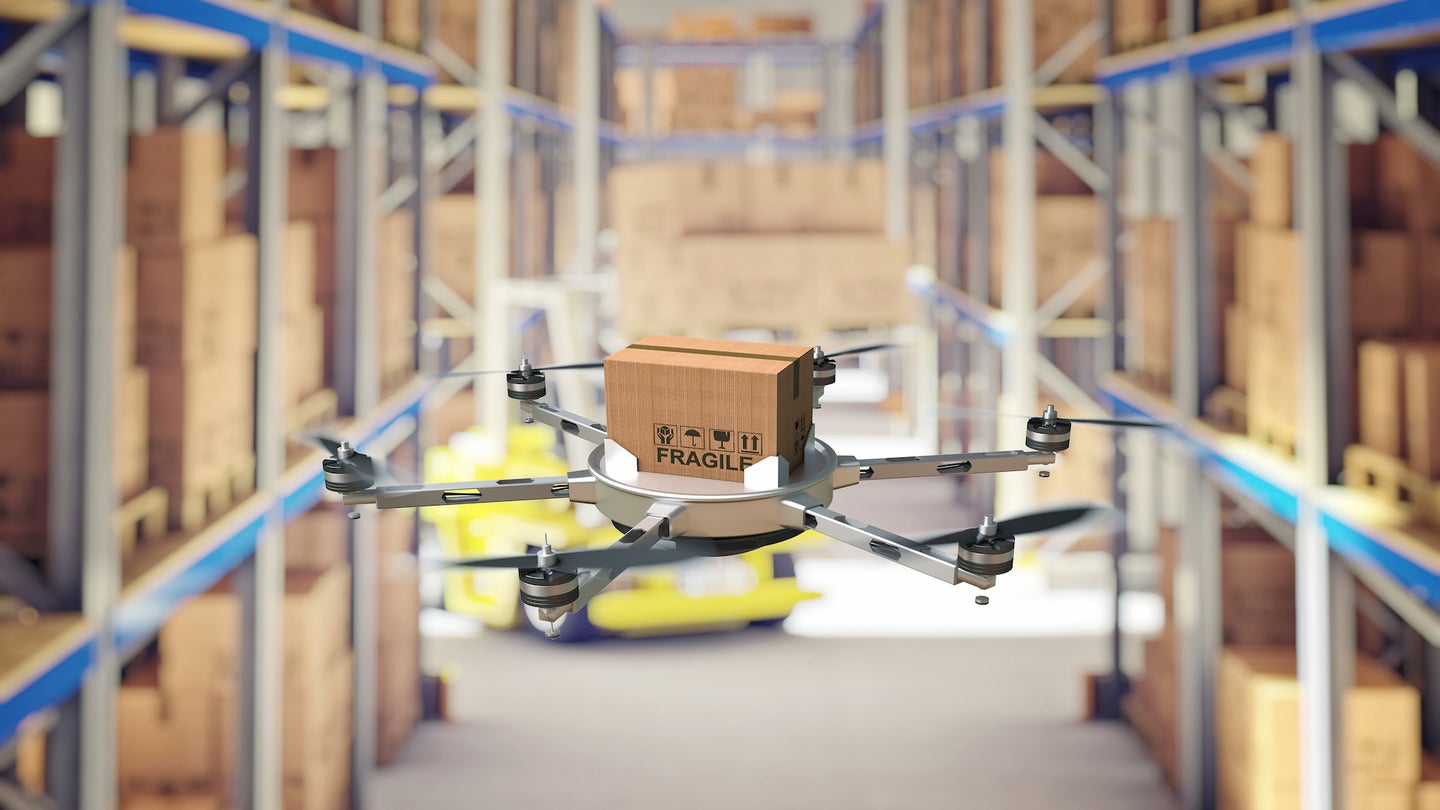New Study Finds Drone Delivery Can Be More Earth-Friendly Than Truck Delivery
Research by the University of Washington says even fleets of drones paired with trucks may be the most efficient system.

As package delivery via drone slowly but surely transitions from testing to real-world practice, a lot of questions are begging to be answered. UPS recently began small-scale testing of its new delivery model, which combines truck and drone delivery. Domino's Pizza was famously one of, if not the first, U.S. company to offer commercial delivery.
If drone technology is to become ubiquitous, however, analytical research must precede widespread implementation. One of those questions this future raises was recently posed by transportation engineers at the University of Washington, Seattle, who looked into the difference in CO2 emissions between hypothetical large-scale drone use for deliveries and the current method of truck-based shipment.
At first blush, drones might seem like the more energy-efficient delivery method. After all, gas-guzzling trucks barreling down the highway seem far less green compared to electric multi-copters zipping through the skies. However, thanks to scientists such as Dr. Anne Goodchild, associate professor of civil and environmental engineering at the University of Washington, we can now compare actual data instead of gut feelings.
According to Digital Trends, Dr. Goodchild's initial theory favored traditional truck delivery over drones. "My intuition was that the drones would produce high levels of CO2 compared to trucks due to their inability to consolidate deliveries into one vehicle and the energy intensity of flying, [since] per ton-mile air has been estimated to produce almost an order of magnitude more CO2 than current trucks," she said.
But once enough data was gathered, Dr. Goodchild and her peers found the unexpected. "We were surprised to find that for some realistic conditions, drones produced less CO2 per delivery than trucks," she said. "They perform better with smaller distances, and fewer packages in the truck. This is largely due to their incredibly energy efficient and lightweight design.”
According to Dr. Goodchild's research, the most efficient way to reduce carbon emissions for deliveries leans toward the model UPS decided on: having trucks taking care of the long hauls, while drones focus on local, short-range deliveries.
Before implementing any change that significantly alters shipping standards, though, she urges lawmakers and researchers to do their due diligence. "This requires we address air space safety, and the potential of drones to be a nuisance to the population,” Dr. Goodchild said.
